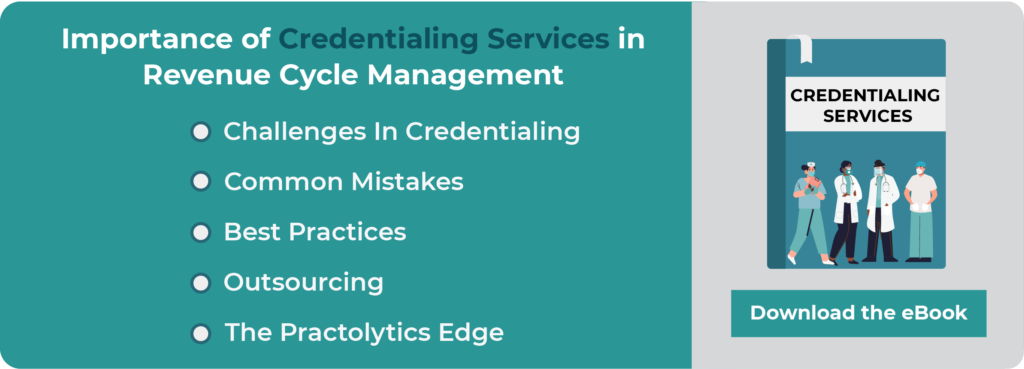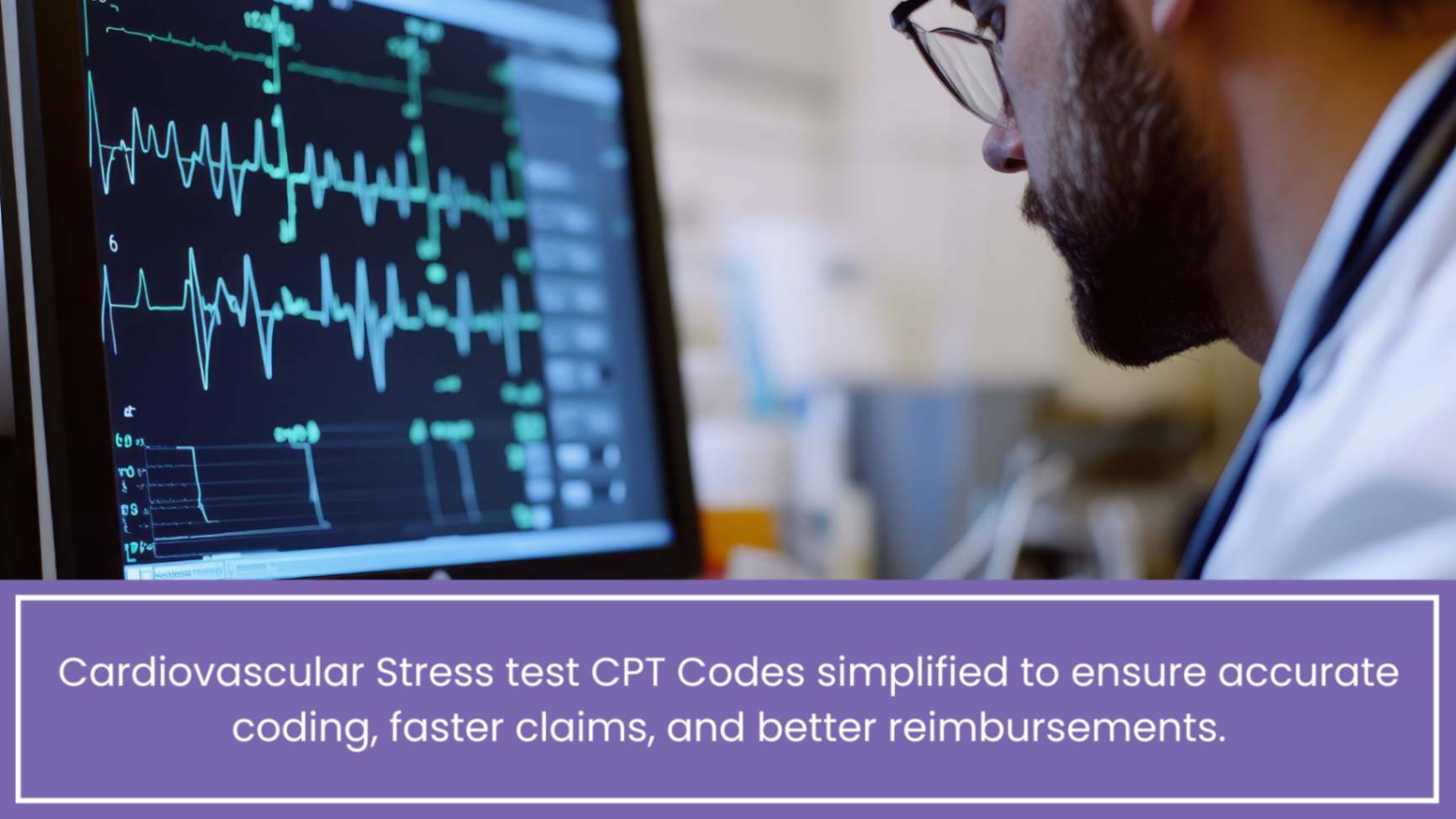Success Keys Streaming Gastroenterology Billing and Credentialing
The two significant aspects pivotal to the gastroenterology landscape are billing and credentialing processes. Proper billing guarantees the financial stability and sustainability of gastroenterology practices through accurate and timely reimbursements for the rendered patient services. Improper billing can result in revenue concerns, compliance implications, and even legal hurdles.
Conversely, credentialing is an essential healthcare component that verifies the credentials like qualification, experience, licensure, and such of healthcare providers. It enables them to participate in insurance networks and helps them deliver high-quality patient care. Without an appropriate credentialing process, providers will have to confront several hurdles while providing patient care and receiving coverage from insurance companies.
In a nutshell, the efficacy of billing and credentialing are two significant processes that could profoundly impact operational efficiency, financial sustainability, and compliance in gastroenterology practices.
However, there are several complications associated with the effective billing and credentialing process that providers must navigate through. These may include frequent adaptations and changes in regulation needs and reimbursement policies, claim denials and rejections, turnover or staffing shortages, increased administrative burden, and complex documentation and coding needs.
To boot, the challenges in the credentialing process could emerge from a time-consuming application process, credentialing discrepancies or errors, a struggle in keeping up with the updated provider information and exploring the nuances of insurance networks. These challenges are indisputable. Overcoming them is essential for gastroenterology practices to benefit from their delivered patient services. A proper perspective on these challenges will allow gastroenterology practitioners to devise approachable solutions and strategies to optimize the overall billing and credentialing process.
Table of Contents
Key Strategies for Effective Billing:
Utilizing technology and software solutions:
Leveraging cutting-edge technology like specialized software and other innovative solutions will help streamline and improve the billing process for gastroenterology practices. Integrating billing modules with the Electronic Health Record/EHR systems helps optimize the documentation process, enhancing coding and claims submissions. Technology designed for billing will help reduce errors and significantly improve accuracy. Practice Management Software automates several time-consuming tasks including eligibility verification, payment posting, and claims processing. This helps in saving hours and reduces administrative burdens. In addition, leveraging Revenue Cycle Management solutions enables access to real-time billing performance insights, reimbursement patterns, and revenue trends. It allows practices to determine places for improvement and increase revenue capture.
Staff training and education on billing practices:
It is crucial to train the staff and educate them on the nuances of the billing cycle to bring about accuracy and ensure compliance in gastroenterology practices. Delivering extensive training programs for practice staff and providers helps them familiarize themselves with the guidelines, documentation requisites, payer guidelines, and regulatory shifts. Continuous education and professional development prospects keep the staff on top of the industry’s optimum practices and emerging trends in reimbursement and billing. Empowering the staff with adequate knowledge and equipping them with the necessary skills will give them elbow room to explore the intricacies of billing processes. By this, gastroenterology practices can reduce billing errors and denials while enhancing the revenue cycle performance.
Streamlining billing workflows and processes:
It is essential to have a streamlined billing cycle to alleviate inefficacies and bottlenecks that can impact RCM performance in gastroenterology practices. Evaluate existing billing processes to determine optimization areas including delays, manual data entry, and redundant processes. Employing standardized billing protocols and automating recurring tasks by leveraging automation tools will help enhance operational efficiency while reducing administrative stress. Devising proper communication channels and accountability apparatus among billing staff will help cultivate collaboration and bring about seamless cohesiveness in the billing workflow. Ongoing process enhancement enables gastroenterology practices to be revamped according to dynamic industry standards and helps maintain optimum billing performance.
Implementing regular audits and quality assurance measures:
Employing systematic auditing and quality assurance initiatives is pivotal for maintaining precision in billing and compliance with regulatory standards in gastroenterology practices. Organizing internal audits for documentation, billing, and coding will help identify discrepancies, errors, and possible compliance concerns before claims submission. Likewise, external audits by third-party consultants deliver independent analyses of billing performance and determine key improvement areas. Leveraging effective quality assurance processes including claim scrubbing and peer view ensures adherence to payer requisites, coding policies, and regulatory needs. By actively determining and addressing billing concerns and compliance complexities, gastroenterology practices can alleviate financial losses, minimize exposure to routine audits, and secure practice reputation.
The Significance of Credentialing
To back proper patient safety, and regulatory compliance, and clear the way for seamless participation in insurance networks, it is crucial to carry out effective credentialing. It helps in assessing providers for necessary credentials including skills, and specialty services, and helps protect patients from possible harm and maintain the healthcare system’s integrity.
Challenges associated with credentialing
- The comprehensive paperwork, time-consuming credential verification, and maintenance of proper communication with several shareholders.
- Exploring complex credentialing requisites set out by different insurance companies and regulatory firms, resulting in administrative concerns and delays.
- The shift in provider status and staff turnover can result in disrupted credentialing workflow and demand updates to provider data, bringing in additional administrative concerns and possible reimbursement delays.
Implications of credentialing on practice operations and reputation
The credential process has a profound impact on gastroenterology practices’ participation in insurance networks, reimbursement capture, and patient services. Errors and delays in credentialing can result in disoriented operations, resulting in revenue loss and patient discontent.
Successful credentialing improves the reputation of gastroenterology practices by illustrating quality commitment and compliance. On the other hand, credentialing concerns can hinder the practice’s reputation, disapproving patient trust and confidence in the services delivered.
Best Practices for Credentialing
Establishing efficient credentialing protocols:
- Devise standard protocols and workflow infrastructure for a streamlined credentialing process and guarantee consistency.
- Employ technology and electronic systems to automate, track, and manage the credentialing process at each stage and secure provider information.
- Allocate designated practice staff to oversee the credentialing workflow and maintain compliance with regulatory needs.
Maintaining accurate provider data and documentation:
- Maintain updated provider info such as certifications, licensure, training credentials, and malpractice insurance.
- Set up centralized storage and organization systems for credentialing documentation to cater to seamless access and retrieval when required.
- Monitor the expiration dates on credentials systematically and foresightedly carry out renewals for credentials to alleviate any occurrences of lapses and ensure ongoing participation in insurance networks.
Navigating insurance networks and payer requirements:
- Practices must familiarize themselves with the outlined credentialing requirements set out by different insurance companies in their network ensure compliance and eliminate delays.
- Devise communication channels for open contact with insurance companies and credentialing firms to address inquiries, rectify issues, and accelerate the credentialing process.
Building strong relationships with credentialing organizations and payers:
- Demonstrate responsiveness, cooperation, and professionalism to credentialing and insurance companies to build positive relationships.
- Support practice needs and goals when communicating with insurance and credentialing firms to ensure streamlined and timely reactions to credentialing requests.
Final Words
For gastroenterology practices to emerge victorious, it is essential to integrate the credentialing and billing process effectively. By employing key approaches like technology utilization, staff training and investment, smooth workflows, and regular audits, gastroenterology practices can enhance the overall efficiency of the revenue cycle. It will ensure compliance with regulatory needs. Likewise, the proper credentialing approach must be prioritized like setting out effective protocols, maintaining precise provider info, and cultivating strong relationships with credentialing and insurance firms are pivotal for operational excellence and patient security. Ultimately, by acknowledging the issues associated with credentialing and billing and adopting the best strategies, gastroenterology practices can spot themselves for long-term success, financial sustainability, and reputational integrity in the dynamic healthcare terrain.
Practolytics: Your Prescription for Profitable Practice Management!
Improve your practice’s RCM efficacy and elevate it to new heights by opting for Practolytics as your trusted credentialing partner. With our unmatched expertise and dedication to accuracy, Practolytics brings in seamless exploration through intricate credentialing procedures, allowing you to focus on what is important – patient care. Our customized solutions and personalized assistance empower practices to overcome challenges associated with credentialing. Never let administrative load hold you back – Partner with Practolytics and unleash optimum RCM potential now!
ALSO READ – Addressing Challenges in Gastroenterology Billing
Talk to Medical Billing Expert Today — Get a Free Demo Now!






